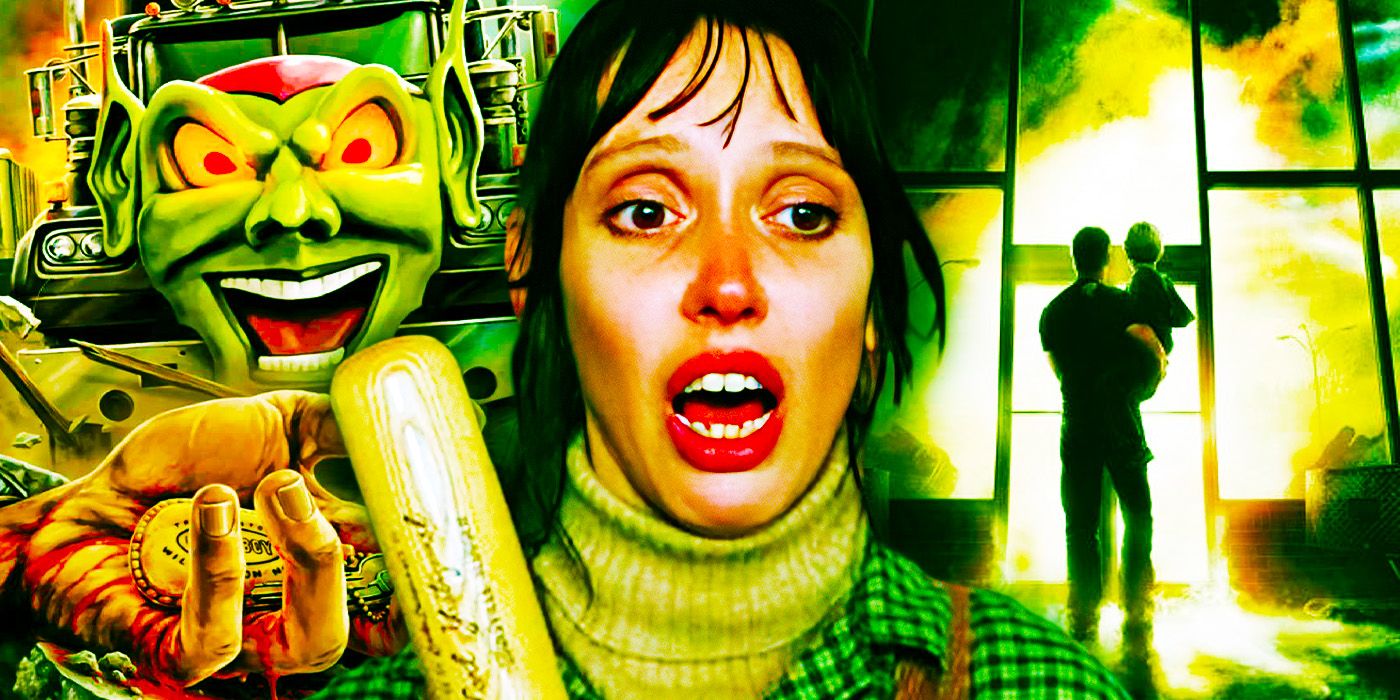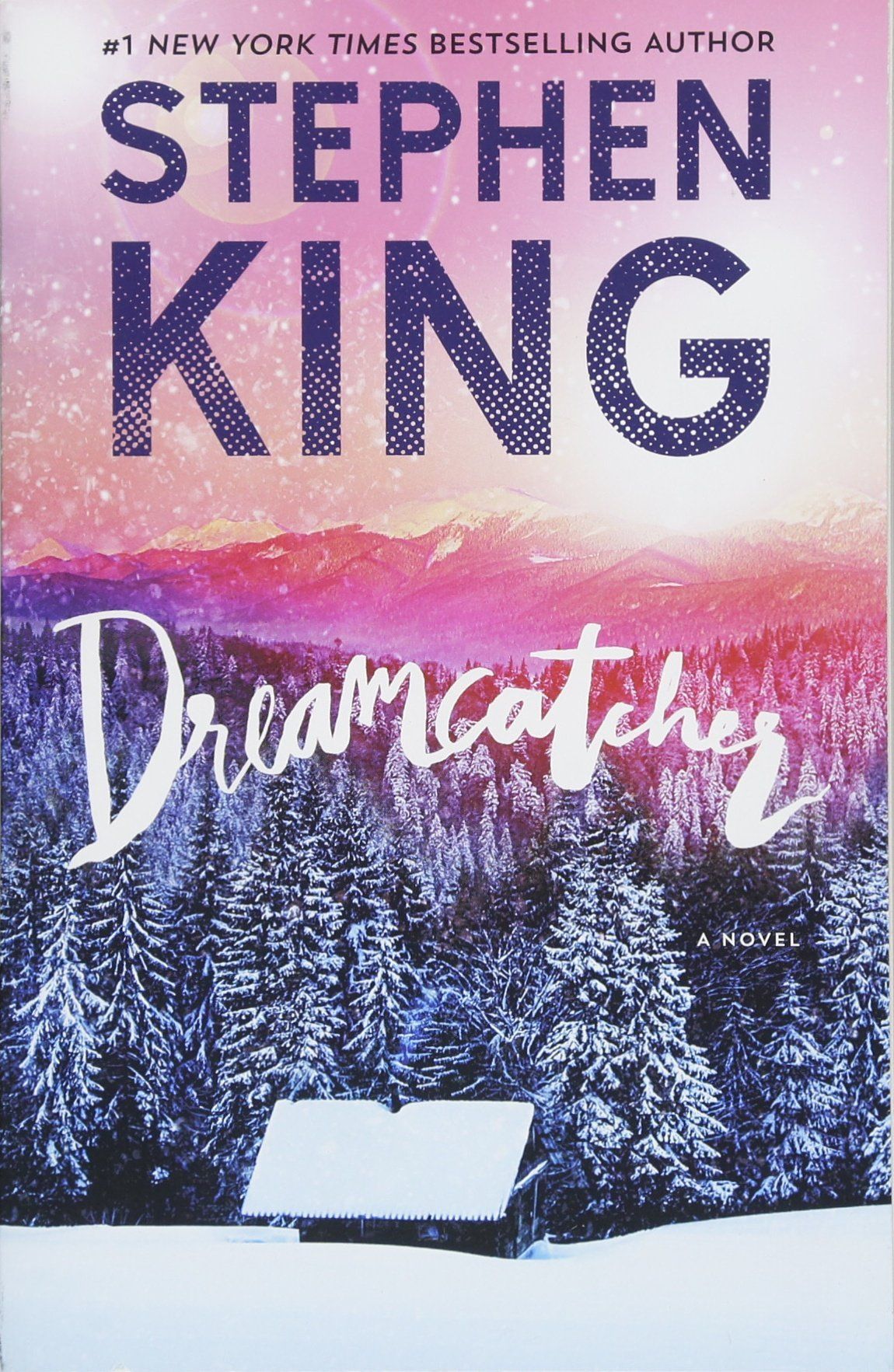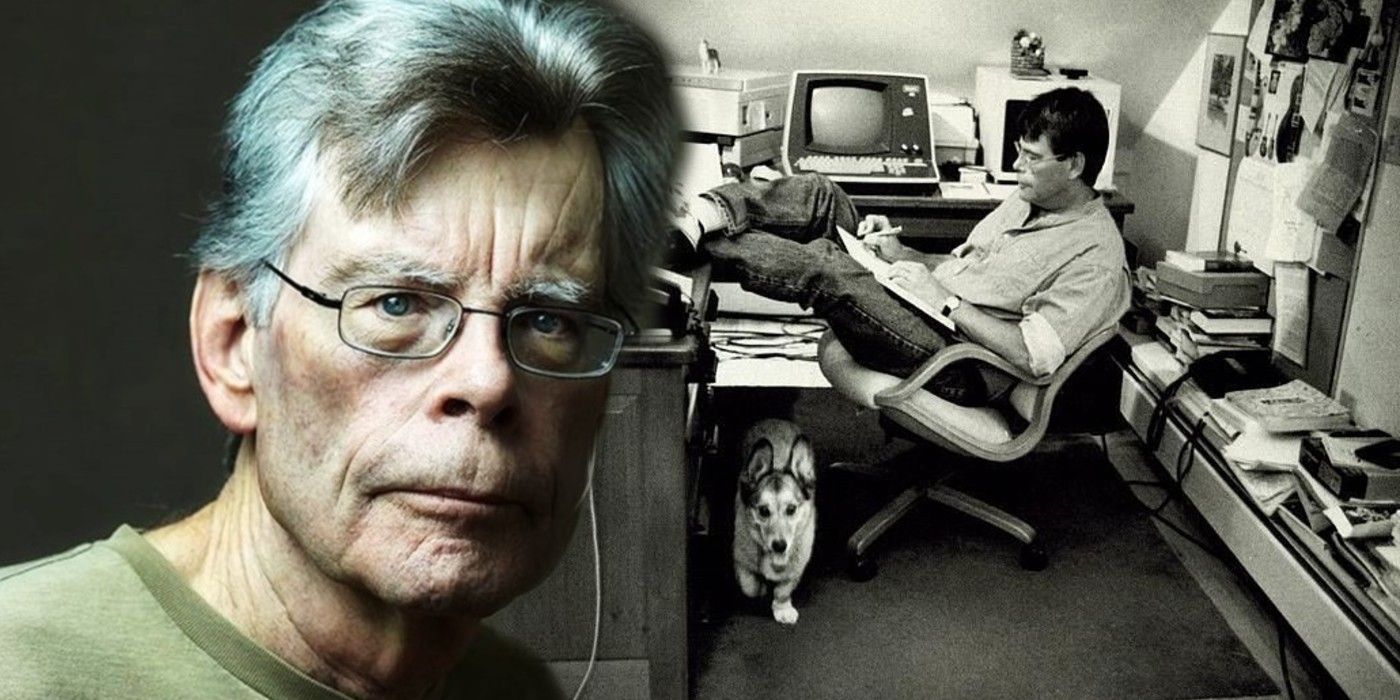Summary
- Stand By Me is Stephen King's favorite movie adaptation as it faithfully followed the novella The Body and captured the emotional essence of the story.
- Stephen King's uncut version of The Stand is considered a masterpiece due to its detail, immersive storytelling, and gruesome nature.
- King's iconic novel The Shining delves into Jack, Wendy, and Danny Torrance's haunting experiences at the Overlook Hotel, where spirits torment them with a history of substance abuse and violence.
As the king of horror, almost all the 66 Stephen King books ranked among the best in the genre. When he authored Carrie, his first novel, in 1974, his name immediately skyrocketed to one of the most recognizable in the horror genre — both for his novels and short stories. Studios noticed Stephen King's literary talent and offered movie adaptations immediately with Carrie. King remains a powerhouse with new stories and movie/TV adaptations coming from the mind of horror's most cherished author every year, but how do they compare?
King has authored over 200 stories, with short stories, novellas, and novels. Carrie was his first movie adaptation, but it was nowhere near the last. Movie adaptations of Stephen King books are released at the same frequency as his literary tales, with at least one making its debut every year since 1980. Numerous upcoming King stories are in development to become a series or movie. King's legacy makes his last name the definition of the genre. Each of Stephen King's novels is impeccable in its own right, but some Stephen King books ranked higher than others.

10 Wild Theories That Completely Change Stephen King Movies
Stephen King movies have made way for a variety of theories, and if some of them were true, they would completely change one or more movies.
Stephen King's short story collections are not included in this list.
66 Dreamcatcher
March 20, 2001

Dreamcatcher
Stephen King's Dreamcatcher amalgamates some of horror's greatest sci-fi elements, including alien invasion and body horror. The story is set in Derry, Maine, one of the three fictional towns that King created for his literary multiverse. Dreamcatcher has some captivating moments but leads to underwhelming scenes and dialogue that could've been bettered had its plot not been reliant on so many sub-genres meshing together.
Despite its closeness to the source material, even the movie adaptation is regarded as one of King's worst — though some find it underrated. King himself said he doesn't like Dreamcatcher very much (via Rolling Stone). He said he wrote the book after an accident where he was out walking and was hit by a van. He said, "I was pretty stoned when I wrote it, because of the Oxy, and that’s another book that shows the drugs at work." He personally ranked it below Tommyknockers as his least favorite release.
65 The Tommyknockers
November 1987
The Tommyknockers is a Lovecraftian tale with Stephen King stylization, However, it was also one of King's first attempts to go outside the horror genre with a pure sci-fi tale here. There are horror elements, as King drifts into hints of body horror in the story, but at the end of the day, this ended up as one of King's lesser-liked books in his illustrious career. Not only was it disappointing for fans at the time of its release, but it is one of the books King himself hates the most.
King blames the poor writing on his drug use at the time, and he calls it an "awful book" that he wrote while embroiled in the harsh drug addiction that he dealt with in the 1980s. However, he said it had some good ideas underneath it all (via Rolling Stone). "The Tommyknockers is an awful book. That was the last one I wrote before I cleaned up my act. And I’ve thought about it a lot lately," he said at the time. "The book is about 700 pages long, and I’m thinking, 'There’s probably a good 350-page novel in there.'"
64 Cell
February 2006
If there's one thing that Stephen King books do well, it's the apocalypse. In the 2006 novel Cell, a New England artist discovers that a bizarre cellular signal transforms people into zombie-like creatures. It is no George A. Romero horror story, but it is King's valiant attempt at making his mark in the zombie horror sub-genre. Due to the vast amount of literature featuring the living dead, it reads as an unremarkable tale that could've been far better had he focused more on the technological aspects and social commentary that was woven into Cell.
It was mostly lightweight stuff and the movie that resulted received terrible reviews. Interestingly, Stephen King wrote the script for Cell and decided to change the story's ending in the script, as the book ends without a clear resolution and readers have to determine if the book's hero, Clay, is able to save his son Johnny or not. It didn't help as the movie ended up certified rotten with an 11% score on Rotten Tomatoes, and even the audience hated it, rating it at a low 17% rotten score.





